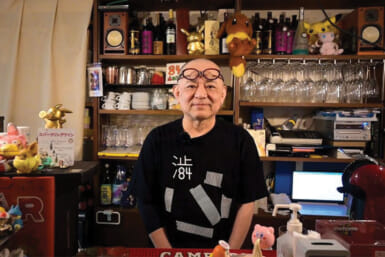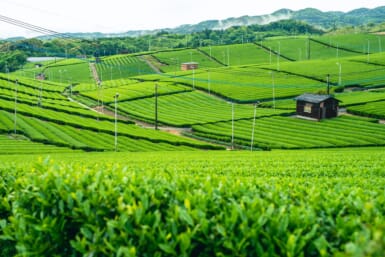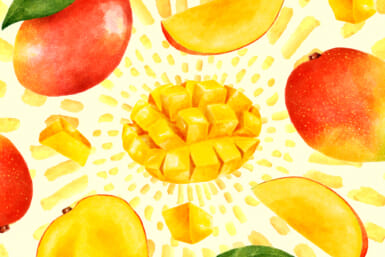Kushi Garden—a macrobiotic haven
by Christina Bell
Kushi Garden stands out from its surroundings as soon as you catch sight of it. Located in the Palaceside Building near the Imperial Palace, it provides a spot of relief from the sheer functionality of the building. Once inside, its distinction as an oasis of calm is apparent. With the music of G-Love in the background, you transition from bright lights and concrete to what almost resembles a neighborhood cafe in San Francisco or Minneapolis. Natural fibers and rustic decorations abound, all in neutral earthy colors. Because it is a macrobiotic restaurant, there are no animal products in any of the food offerings. The chef uses vegetables, brown rice, and whole-wheat pasta as a medium for creating offerings that are carefully spiced and beautifully presented.
Diners generally choose from several set dinners, each one served in pottery dishes arranged in a shallow wicker tray. A la carte is available, but the reasonable pricing on the sets makes them the logical choice. Each set is accompanied by a choice of miso or soy sauce soup, both of which are delightful. The miso soup is thicker than what you might find elsewhere, but the flavor remains subtle. The soy sauce soup is unexpectedly mild, with none of the saltiness the inclusion of soy sauce might imply. Both soups include a healthy portion of vegetables, onions in the miso, and carrots in the soy.
Available main dishes include brown rice porridge, a rice bowl with hijiki, pasta, and vegetable curry. The brown pasta with broccoli is pleasantly surprising, especially in the consistently of the noodles, which were light and smooth. The seasonings in the dish are flavorful, yet light enough to complement the broccoli without overpowering it. The vegetable curry is beautifully presented and just spicy enough to keep things interesting. The brown rice that accompanies the curry has a wonderful smooth texture. It was also accompanied by a very fresh salad of mild cabbage, carrots, and bean sprouts.
The overriding theme in all Kushi Garden’s offerings seems to be a sense of balance. Textures, flavors, and spice levels seem perfectly attuned to one another. By the end of dinner, your palate is so at peace with the idea of a macrobiotic diet that you don’t even protest when instead of coffee, an after-dinner grain beverage arrives with soy milk and beet sugar. It seems like a natural progression at that point.
When leaving Kushi Garden, take note of the car-ryout bakery items, such as the scones. There is also a small market of macrobiotic goods outside which is worth perusing. Some of the items for sale, such as dried lentils and tahini can be difficult to find in a Japanese supermarket.
Kushi Garden is certainly worth a visit, whether you have a prior interest in a macrobiotic diet or not. The peaceful environment, combined with carefully prepared, surprisingly hearty fare provides a satisfying dining experience, regardless of your prior notions about vegetarian food.
For more information on the macrobiotics foods at Kushi Garden, see www.kushi-garden.com or call 03-3215-9455.








